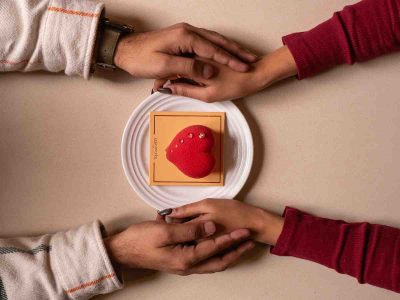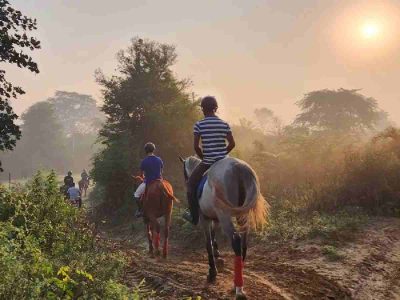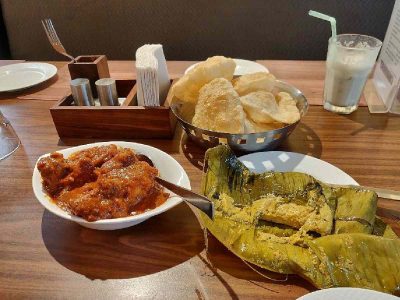Restaurant review: In a city saturated with coffee chains and Instagrammable cafés, ‘Before British Raj‘ doesn’t just serve food—it serves memory, meaning, and quiet defiance. Founded by brand-builder-turned-storyteller Gathika Chhabra, the café is part culinary destination, part cultural manifesto, and wholly Indian in soul.
“I was maybe twelve, sitting in my school classroom daydreaming—not about movie stars or mark sheets but about a café,” recalls Chhabra. “A place where food felt like home, and you never had to explain yourself.” The idea took root not in a boardroom but “in a living room filled with books, food, memories, and chai conversations.”
Also read: Summer treats: 5 iconic chillers that Delhiites swear by
Menu as memory
The menu is a timeline in disguise—divided into three sections: Before British Raj, After British Raj, and No Divide, Only Dil Pe Raj.
The Before section draws from temple kitchens, regional traditions, and family recipe books—untouched by colonial influence. After British Raj section explores Anglo-Indian blends, such as how bread arrived with the Portuguese but keema remained ours. The third section, Dil Pe Raj, celebrates post-Independence India—bold, hybrid, and rooted.
“We asked: how would this taste if it travelled across time?” says Chhabra. That led to dishes like Papa’s Special Keema Pav—her father’s Sunday favourite—and a vada pav with history. “Most people think of vada pav as a forever Indian thing,” she explains, but its origin lies in Portuguese bread meeting Indian vada—creating a street food icon with no marketing team and lasting legacy.
Reclaiming the cup
The café also reclaims India’s legacy in beverage culture. “We grow Robusta with boldness, Arabica with finesse,” says Chhabra. “And yet, we’ve been taught to look outward for validation.”
Tea and coffee here are cultural statements. Beans sourced from Chikmagalur and Coorg form blends named after kingdoms, rivers, and fabrics of India. Teas range from Assam to ceremonial greens, selected with reverence for legacy and locality. “We don’t just pour tea—we pour tradition.”
A space to belong
More than food or drink, the café offers belonging. “I want diners to feel seen. Heard. Held, even if no one actually hugged them,” says Chhabra.
Whether it’s a child curious about the Sun Temple’s shadow or an elderly couple with dietary needs, ‘Before British Raj’ fosters connection. “Whether it’s your first heartbreak or your fifth interview, I want BBR to be the place you come back to.”
Inclusivity extends to Braille menus, vegan cheese, gluten-free desserts, and weekend specials featuring regional cuisines from Bihar to the Northeast. “History hasn’t always been inclusive,” she says. “So we wanted to break that.”
Interiors with intent
The design is intentionally restrained. A muted palette—grey, white, black—evokes simplicity and colonial shadow. Repurposed wood and artisan furniture meet walls adorned with canvases, rebel quotes, and old letters. “The most beautiful thing about the space is what isn’t seen. It’s the unspoken ease.”
Growth with roots
With outlets in Delhi, Noida and now Gurgaon, the café is expanding—but carefully. “We want to grow like trees, not towers. With roots first,” says Chhabra.
Menus evolve every six months, reviving forgotten cuisines not as relics but as evolving traditions. “Expansion isn’t scale, it’s depth,” she says. “We want people to learn through taste. Laugh through menus. Heal through heritage.”
Also read: Delhi-NCR: 5 must-visit water parks for perfect summer escape
Staying real in a world of reels
Running the café has challenges. “The hardest part is staying real in a world rushing toward reels,” Chhabra says. But the joy is in the details—a postcard, a cookie wrapper with a cave reference, or a customer calling it their “happy place.”
“Before British Raj is a café, yes. But it’s also a quiet revolution served with froth and feeling,” she says. “It’s a reminder: you are not alone. There’s a seat waiting for you, just as you are.”





